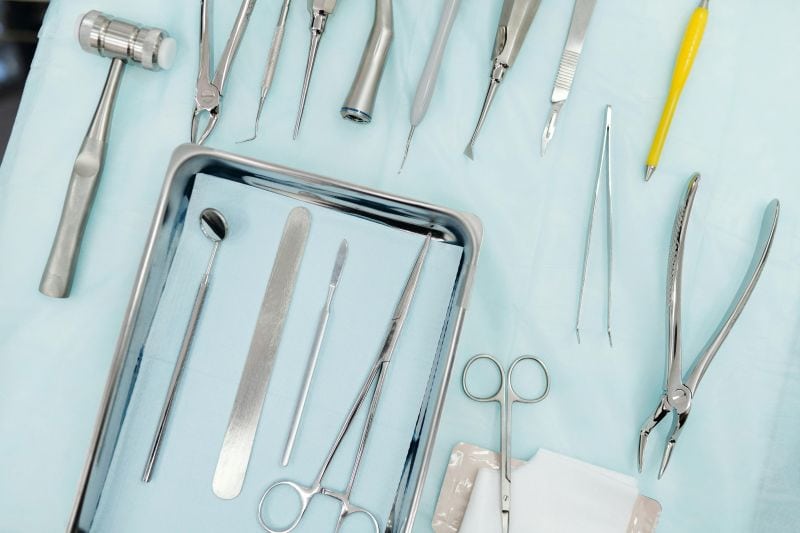
24 Oct The Connection Between Oral Health and Immunity
The Connection Between Oral Health and Immunity
When most people think about oral health, they imagine bright smiles and fresh breath. But your mouth does far more than help you speak or eat—it plays a critical role in your immune defense. The connection between oral health and immunity is now a major focus of medical research, showing that maintaining clean teeth and healthy gums can help your body fight off infections and reduce inflammation.
Simply put, your mouth is the first line of defense against many harmful invaders. Neglecting it doesn’t just cause cavities—it can weaken your immune system, increase inflammation, and make you more vulnerable to illness.
Understanding the Link Between Oral Health and Immunity
The Mouth as the Gateway to the Body
The mouth serves as an entry point for food, air, and countless microorganisms. Every time you eat, talk, or breathe, bacteria pass through. A healthy oral cavity, rich in beneficial microbes and protected by saliva, prevents harmful pathogens from entering your bloodstream.
When oral hygiene declines, bacteria multiply and create biofilms—sticky layers that lead to plaque and gum disease. These bacteria can trigger inflammation, causing your immune system to work overtime.
Oral Microbiome and Its Role in Immunity
Your mouth is home to over 700 species of bacteria, many of which are beneficial. This oral microbiome supports immunity by keeping harmful bacteria in check. However, when poor diet, stress, or neglect disturb this balance, harmful species dominate.
This imbalance, called dysbiosis, can lead to systemic inflammation and weakened immune function—linking oral health to conditions like diabetes, heart disease, and even Alzheimer’s.

How Poor Oral Health Weakens the Immune System
Inflammation: The Silent Enemy
Chronic inflammation in the gums releases immune signals that spread throughout the body. Over time, these inflammatory markers strain the immune system, making it less efficient at fighting infections elsewhere.
Research published by the National Institutes of Health (NIH) shows that persistent gum inflammation may elevate the risk of autoimmune diseases.
Gum Disease and Systemic Infections
Untreated gum disease allows bacteria to enter the bloodstream, triggering immune responses in distant organs. This connection explains why periodontal disease has been linked to heart disease, rheumatoid arthritis, and even pneumonia.
7 Powerful Ways Oral Health Supports Immunity
1. Reduces Chronic Inflammation
A clean mouth minimizes inflammation, allowing your immune system to focus on genuine threats instead of local infections.
2. Prevents Bacterial Overload
Brushing and flossing prevent bacterial buildup, lowering the risk of systemic infections and keeping immune responses balanced.
3. Strengthens the Oral Barrier
Healthy gums act as a physical barrier against pathogens, while saliva contains antimicrobial proteins like lysozymes and lactoferrin that destroy bacteria.
4. Supports Gut Microbiota Balance
Swallowed oral bacteria influence gut health. A balanced mouth helps maintain a healthy gut microbiome, which in turn regulates immunity.
5. Improves Nutrient Absorption
Strong teeth allow proper chewing, which aids digestion and nutrient absorption—crucial for maintaining immune strength.
6. Enhances Respiratory Health
A clean mouth reduces harmful bacteria that can enter the lungs, preventing infections like bronchitis or pneumonia.
7. Promotes Whole-Body Wellness
Good oral hygiene promotes systemic balance, reducing risks of inflammatory diseases that compromise the immune system.

Key Nutrients and Habits for Strong Oral and Immune Health
Essential Vitamins and Minerals
Healthy Daily Oral Care Routine
-
Brush twice daily using fluoride toothpaste.
-
Floss at least once per day.
-
Use an antimicrobial mouthwash.
-
Replace your toothbrush every 3 months.
-
Stay hydrated and limit sugary foods.
Common Oral Health Problems That Impact Immunity
Periodontitis
An advanced gum infection that triggers systemic inflammation and increases the risk of chronic diseases.
Tooth Decay
Cavities harbor bacteria that may seep into the bloodstream and burden immune function.
Oral Thrush
A fungal infection caused by Candida overgrowth, often appearing when immunity is compromised.
How Stress and Sleep Affect Oral and Immune Health
The Cortisol Connection
Chronic stress raises cortisol levels, suppressing immune responses and encouraging gum inflammation.
Sleep Quality and Saliva Production
Poor sleep reduces saliva flow and immune response, allowing harmful bacteria to thrive overnight.
The Role of Dental Professionals in Immune Health
Regular Dental Checkups
Dentists detect early signs of infection before they impact the immune system.
Preventive Treatments and Screenings
Professional cleanings, fluoride treatments, and oral cancer screenings play a major role in protecting systemic health.

FAQs
1. Can brushing more often really boost my immune system?
Yes, brushing more often can indirectly strengthen your immune system by reducing harmful bacteria in your mouth. When bacteria and plaque are removed regularly, your body experiences less inflammation and fewer immune triggers. This allows your immune system to stay balanced and focus on fighting real infections instead of constant oral irritation.
2. Is gum disease linked to other chronic diseases?
Gum disease has been closely linked to chronic illnesses such as heart disease, diabetes, and rheumatoid arthritis. The bacteria from infected gums can travel through the bloodstream, causing inflammation in other parts of the body. Managing gum health not only protects your mouth but may also lower your risk of developing or worsening these systemic diseases.
3. Can probiotics improve both oral and immune health?
Yes, probiotics can benefit both your oral cavity and your immune system by restoring the balance of good bacteria. Certain strains, such as Lactobacillus and Bifidobacterium, help reduce harmful bacteria that cause gum disease and bad breath. When your oral microbiome is balanced, your immune system becomes stronger and more effective at defending against infections.
4. What foods naturally support oral and immune health?
Foods rich in vitamins, minerals, and antioxidants are key to maintaining healthy teeth and gums. Citrus fruits, leafy greens, yogurt, and fish provide essential nutrients like vitamin C, calcium, and omega-3 fatty acids. Eating a balanced diet full of these foods strengthens gum tissue, reduces inflammation, and enhances your body’s immune response.
5. How does aging affect the oral-immune connection?
As people age, their saliva production often decreases, which can lead to a dry mouth and higher bacterial growth. This makes it easier for infections and gum disease to develop, putting extra strain on the immune system. Regular dental care, proper hydration, and nutrient-rich foods can help maintain both oral and immune health throughout the aging process.
6. How can children develop strong oral and immune systems?
Children can build healthy oral and immune systems by brushing twice a day, flossing, and eating balanced meals. Encouraging them to avoid sugary snacks and drinks also helps prevent cavities and bacterial buildup. Regular dental visits and good hygiene habits from an early age set the foundation for lifelong wellness and strong immunity.
Conclusion: A Healthy Mouth for a Stronger You
The connection between oral health and immunity is undeniable. Your mouth isn’t just part of your digestive system—it’s a vital component of your immune defense. By caring for your gums and teeth, you’re protecting your entire body from inflammation, infection, and chronic disease.


Sorry, the comment form is closed at this time.